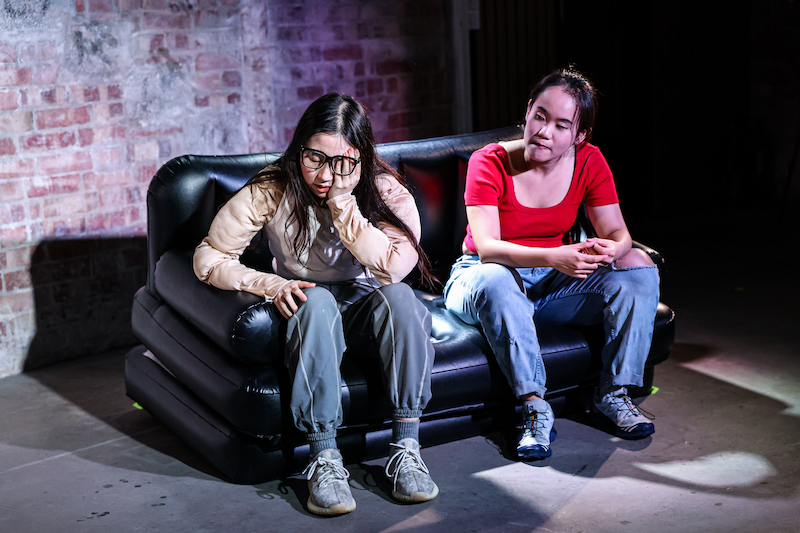Writers: Ern Linn Chong
Directors: Xuan Ge
There is a classic fairy-tale atmosphere to Ern Linn Chong’s delayed coming-of-age story, Reasonable Crash Out. Our 20-something protagonist Ling, played by Bai Rui Ying, is on a quest to discover queer love. Tests and trials come in the form of body dysmorphia, an eating disorder, and a mischievous inner demon, Dee, played by Lyon Chan, who sabotages her at every turn. The allure of enchantment comes in a five-month stint at the gym, where, under the assumption that “muscles get bitches”, Ling bulk-ups, loses weight, and transforms her body to an enviable degree.
Surely, I now deserve “love, adoration, and affection”, Ling demands of her best-friend-cum-fairy-godmother Vii (Li Zhuo Lang). But no matter what she does, Ling’s princess, in the form of the desirable Mandy (Yuan Dai), refuses to love her back. “You’re like summer in December,” Ling tells her. “We’re just best friends”, Mandy, dressed in a striped, crimson t-shirt and scarlet lipstick and nails, retorts. Ling’s transformation will not be about riches or crowns but about self-knowledge. She needs to learn that the key to finding love is loving yourself first, and “that’s not something gym and bitches can fix”. One suspects that the fact that she talks like a misogynistic gym bro might also be getting in the way of Ling’s fairy tale dream.
As with a fair number of fairy tales, Linn Chong’s characters are archetypes, defined by their role and function in the story, rather than their inner life. Mandy is a cypher for unrequited longing. Dee is a manifestation of inner doubt. Vii’s role is to deliver the magical gift of good advice. The characters’ flatness lends them universality, which is helpful in a story with a strong East Asian vibe, but it also robs them of personality.
We learn some of Ling’s backstory in the form of her unresolved anger at the loss of her mother in childhood (“when I hate myself, I hate her, too”), but it is not enough to make her into a psychologically complex individual. In the absence of rounded characters, it is hard to summon up the empathy to care much about Ling’s journey. This being a fairy tale, we know pretty much where we are headed, though Linn Chong delivers a welcome final twist that confounds expectations just a little.
Reviewed on 28 September 2025
The Reviews Hub Star Rating
40%
Modern queer fairy tale.
